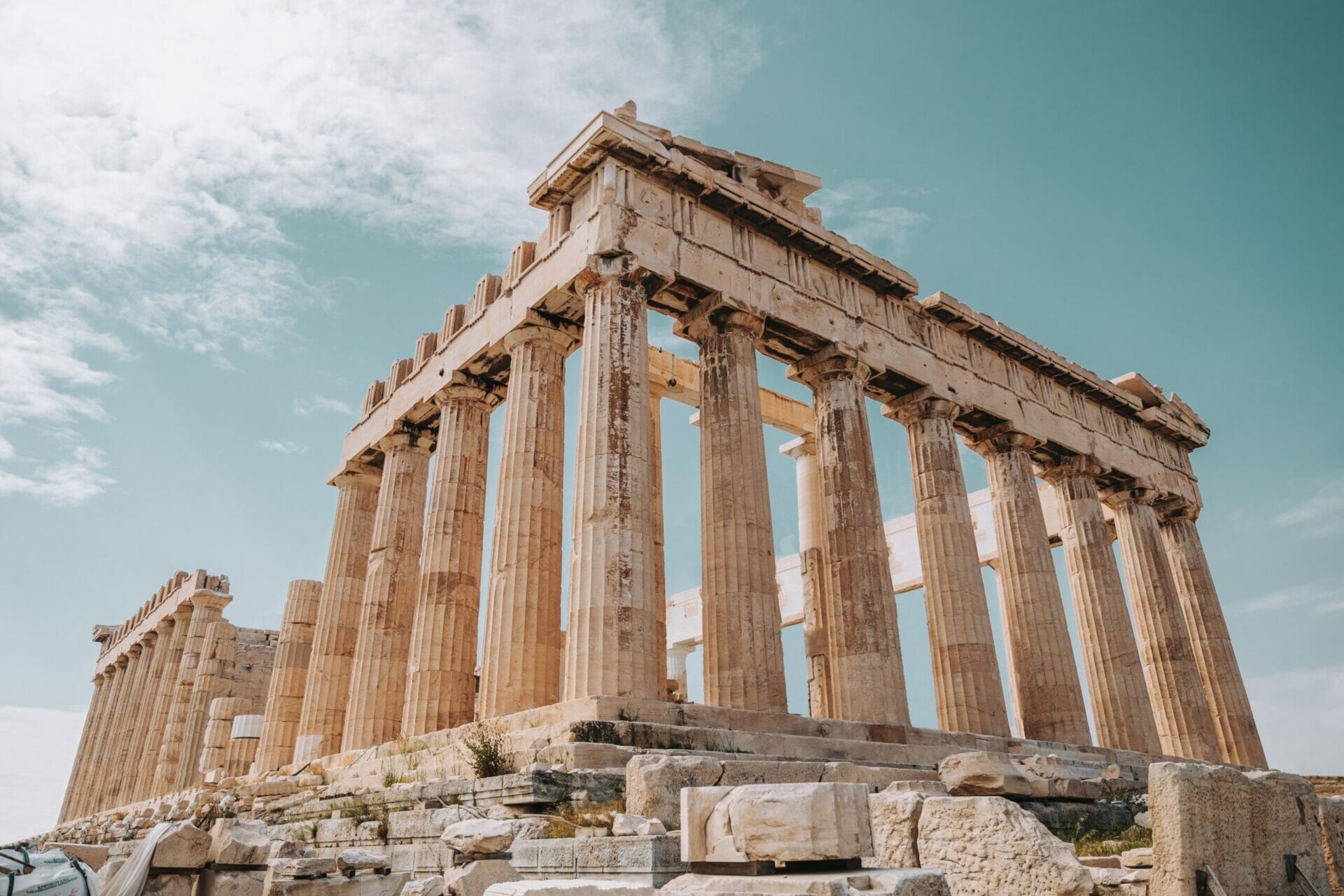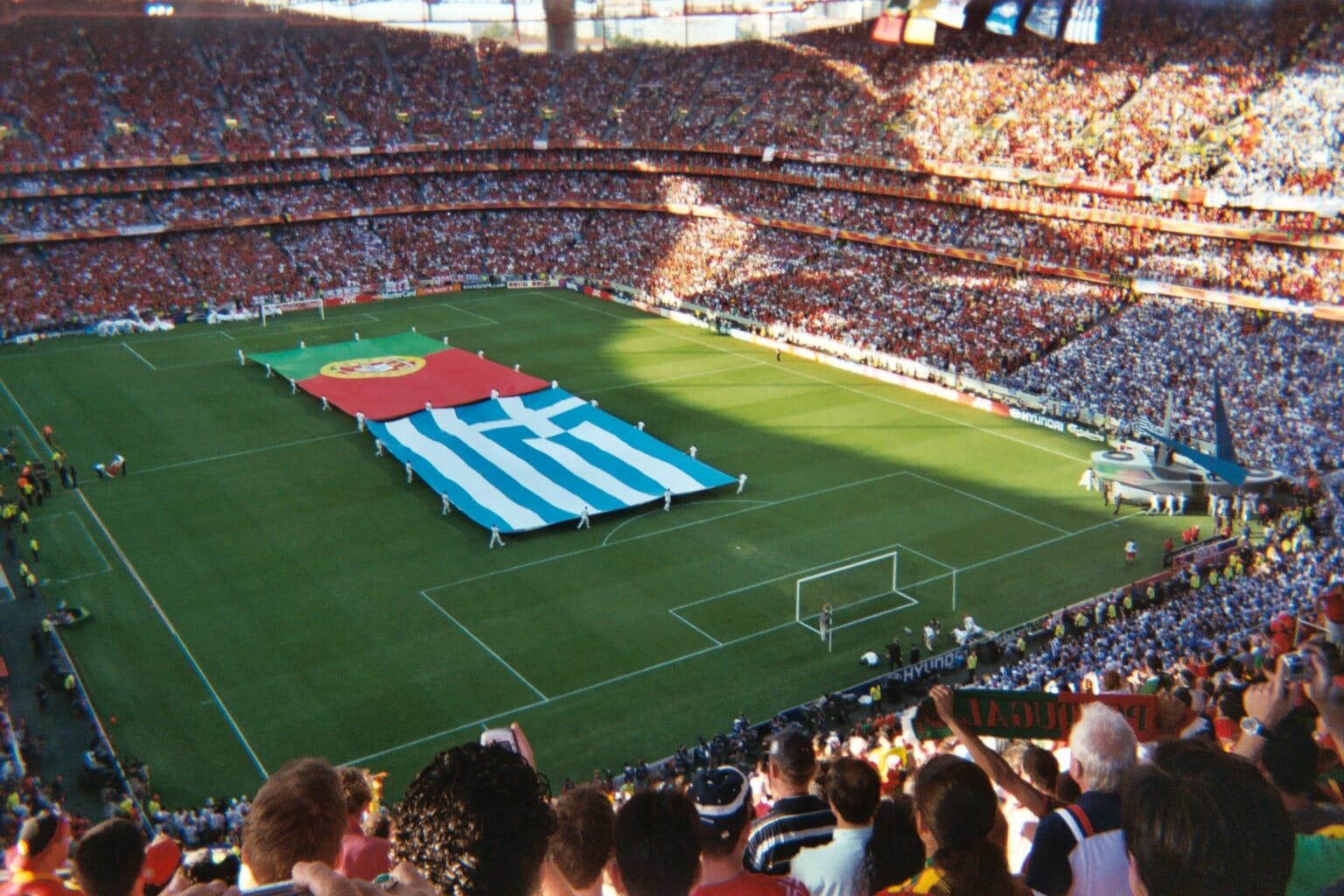
The Basketball EuroLeague 2012 | The Rise of New Gods
Discipline
Event
Date
Length
Winner-Podium
Other protagonists
Year
The 2011/12 basketball season was one of the oddest but also one of the most memorable in recent history. It began with the NBA lockout, which caused many players to temporarily leave the most prestigious competition in the world to find employment elsewhere. Many European clubs took advantage of this opportunity to upgrade their rosters, but the prestigious Greek team had to stand apart and watch the other teams getting stronger as passive spectators. The economic crisis that had already left huge marks on the country’s economy was also affecting basketball. Both Panathinaikos and Olympiacos, the country’s most famous and glorious clubs, had to reconsider their ambitions and were preparing for a difficult season. This was the perfect background for an underdog story, the utmost trial for the rise of new gods.
Origin myth, part 1 – The age of heroes and the Greek crisis
The worldwide effects of the Great Recession and the subsequent financial crisis of 2010 took a huge toll on Greece, leaving the country, its economy, and its people greatly impoverished. In those days, Greek basketball was at its highest. The golden age of basketball heroes had seen the national team claim victory at EuroBasket 2005. One year later, Greece almost replicated the endeavor at the World Cup in Japan but eventually had to settle for second place after a hard-fought campaign whose highlight was the win against the United States in the semifinal.
The bulk of the team, formed by players such as Dimitrios Diamantidis, Vassilis Spanoulis, Ioannis Bourousis, and Theodoros Papaloukas, was also making the fortunes of Panathinaikos and Olympiacos. The former had been EuroLeague Champions in 2007, 2009 and, despite the impending crisis, again in 2011. For the latter, however, there had only been a series of scorching disappointments that had culminated in a defeat against Barcelona in the 2010 EuroLeague final.
To make matters worse, core players such as Papaloukas, Bourousis, and the rising star Milos Teodosic had left the team at the end of the following season after a great budget reduction. It was the summer of 2011, and at that point, it looked like only the rise of new gods could save the team from what looked like a very bleak and disappointing future.
Origin myth, part 2 – The NBA lockout
In the meantime, an unexpected turn of events was bringing a breath of fresh air to European basketball. On the other side of the ocean, a dispute over a new, collective bargaining agreement between the NBA and its players brought the the best league in the world into a lockout. Every team and league operation was suspended until further notice.
The lack of playing time and the impossibility of accessing training facilities thus caused many players to seek temporary employment elsewhere, with the promise to go back once the dispute had been settled and the NBA season could have started again.
Many foreigners like Danilo Gallinari and Rudy Fernandez went back to their home countries. Alongside them, some American players also took the chance of this opportunity to experience overseas basketball.
The biggest prizes went to CSKA Moscow, who managed to sign the experienced center Nenad Krstic and the Russian star Andrei Kirilenko, one of the most successful Europeans in the history of the NBA. The two NBA players joined an already competitive team formed by the likes of Alexey Shved, Sasha Kaun, Andrey Vorontsevich, Victor Khryapa, and Ramūnas Šiškauskas and led by Milos Teodosic, newly signed from Olympiacos. Almost every expert considered them as the clear favorites for the title.
Origin myth, part 3 – The EuroLeague season
While the NBA operations still stalled, the EuroLeague was ready for the start of a new, thrilling season and for the rise of new gods arriving directly from the NBA. All the teams had strengthened themselves.
All but Olympiacos, which by comparison appeared much weaker and was not held in any regard by experts. The Greek legend Vassilis Spanoulis guided a very young team formed by promising but inexperienced talents such as Kostas Sloukas and Kostas Papanikolaou. The only thing that brought a spark of hope among the fans was the return of Georgios Printezis. A childhood supporter of Olympiacos, Printezis was in search of redemption after leaving the team two years before and failing to impress in Spain.
The start of the season went as much as expected. After battling through the first tournament stage, Olympiacos entered a very tough group with CSKA, Efes, and Galatasaray.
The two games against the Russians were one-sided, as the Greeks were defeated 78-86 at home and 96-64 in Moscow. The gap between the teams could not have been larger. Olympiacos seemed already out of the competition, but a great team effort in the last game against Galatasaray meant that the dream was not over. In the EuroLeague playoffs, the Greeks found Siena, another top team. Here, a solid first game by Printezis stunned the Italians and reversed the home-field advantage. In Piraeus, the Greek resistance endured, and Olympiacos managed to reach the unhoped-for EuroLeague Final Four taking place in Istanbul.
Origin myth, part 4 – The Final Four
Far-sighted commentators might have interpreted this exploit as a clear sign of the rise of new gods. In reality, the majority of experts considered the presence of Olympiacos in the Final Four just as happenstance. The other three teams qualified for the final round were Panathinaikos, the reigning champions, Barcelona, the 2010 champions, and CSKA, the great favourites. In the semi-final game against Barcelona, Olympiacos surprised the Catalans with a strong first quarter and managed to endure their resurgence thanks to Spanoulis’ talent and another solid performance by Printezis. In the other semifinal, CSKA closely prevailed against Panathinaikos. Everything was ready for a classic “favorite vs. underdog” matchup in the final.
Thus Olympiacos and CSKA came to clash again on 13 May 2012. The first half of the game confirmed the predictions of the evening. After a tense first quarter, the Russians took flight digging a margin of 14 points. The third quarter did not see much change, with CSKA more than safely in control of the game and the Greeks not seeming to be able to put up a fight. With only two minutes left to play in the third quarter, the Russians were leading 53-34. Defeat seemed inevitable for Olympiacos, but once again, with their backs against the wall, the Greeks put on a solid defensive performance and, with a bit of luck, managed to reduce the gap by 6 points before the end of the quarter.
Origin myth, part 5 – Petaktari
Thus the last quarter of the most important game of the season began. It was a season that had seen a glorious team and a proud nation go down into the abyss, struggling to find the surface again. It could have been the game of redemption for Printezis. It could have been the game of resurgence for a whole country. It might have been so. It had to be so.
The Greeks came back on the pitch with fire in their eyes, but despite their enormous efforts, with only 10 seconds left to play in the game, they were still trailing behind by 3 points. Papanikolaou converted two free-throw shots, bringing Olympiacos only one point behind. That seemed to be the last feature of what could have been the most epic of comebacks: on the next possession Šiškauskas, the most experienced CSKA player, was fouled and given two free throws.
Twice did destiny dance above Olympiacos’ basket, and twice did it reject Šiškauskas’ attempts. After the second miss, Papanikolau caught the rebound and passed the ball to Spanoulis, the number one threat to CSKA’s defense. The veteran charged his opponents head-on but soon found himself surrounded by the defense. All his shooting options were closed. In the heat of the moment, Spanoulis managed to find Printezis, who had been left alone near the end line. With only a few seconds and one shot left between glory and defeat, Printezis shot with his signature “Petaktari” move. The ball seemed to gravitate in the air for a good few seconds before finally coming down towards the basket, finding nothing but the net. Printezis’ Petaktari marked the end of one of the most intense finals in EuroLeague history and gave the victory to Olympiacos, giving way to the rise of new gods.
Tag
Buy a ☕ for Hypercritic









